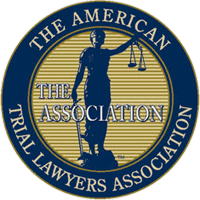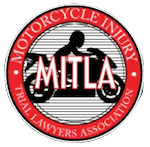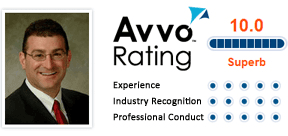When navigating the complexities of a reckless driving defense, evidence plays a critical role in shaping the outcome of the case. Reckless driving is considered a severe traffic offense, characterized by a willful disregard for the safety of persons or property. This category of driving offense is treated with seriousness by the legal system, and proving or disproving the elements of reckless driving hinges heavily on the presentation and analysis of evidence.


James J. Tenn, Jr.
Attorney

Mary Elizabeth Tenn
Attorney

John J. Tenn
Attorney
Working hard to obtain the best results possible for our clients and fighting to protect their rights.
Understanding the Nature of Reckless Driving
Reckless driving typically involves actions such as excessive speeding, aggressive maneuvering, or driving under the influence. It goes beyond mere traffic violations and enters the realm of criminal behavior due to the potential risk it poses to others. The law defines reckless driving in various ways, but it generally requires that the driver acted with a disregard for safety that could foreseeably lead to harm. This definition sets the stage for how evidence is used in court, as it must establish or refute the driver’s intent and actions in the context of these dangerous behaviors.
The Significance of Gathering Evidence
In a reckless driving case, evidence serves to either support the claim of recklessness or to counter the allegations made against the defendant. The evidence gathered can come from several sources, each contributing a piece to the puzzle. For instance, police reports, eyewitness testimonies, and accident reconstructions are often pivotal. The credibility and reliability of these sources are scrutinized in court to determine their impact on the case.
Police reports provide an initial account of the incident and often include observations made by officers at the scene. These reports can include details such as the condition of the road, the behavior of the driver, and any immediate violations observed. However, these reports may also reflect the officer’s subjective views, which can be challenged by a thorough examination of the facts and circumstances surrounding the incident.
Eyewitness testimonies can offer valuable insights into the driver’s behavior and the events leading up to the incident. These testimonies can be used to establish the context in which the alleged reckless driving occurred. However, it is essential to assess the reliability of these witnesses, as memory can be fallible and perceptions may be influenced by various factors.
Accident reconstruction specialists can play a crucial role in interpreting the physical evidence from the scene of the accident. They use scientific principles to recreate the events leading up to and following the crash. This type of evidence can provide an objective view of the driving behavior and the dynamics of the accident, which can be instrumental in challenging the claims of recklessness.
The Challenge of Refuting Evidence
Defending against a reckless driving charge involves scrutinizing the prosecution’s evidence and identifying any discrepancies or weaknesses. One common strategy is to question the accuracy of the evidence presented. For instance, if the police report contains errors or omissions, this can be leveraged to argue that the report does not accurately reflect the events. Similarly, challenging the reliability of eyewitness accounts or the methods used by accident reconstruction proessionals can help undermine the prosecution’s case.
In addition to challenging the evidence presented by the prosecution, a defense strategy may include presenting counter-evidence to demonstrate that the driving was not reckless. For example, obtaining records that show road conditions were poor, or weather conditions were hazardous can provide context that mitigates the severity of the driving behavior. Testimonies that provide alternative explanations for the driver’s actions can also be crucial in demonstrating that the behavior did not rise to the level of recklessness.
The Importance of Legal Representation
Given the high stakes associated with reckless driving charges, having skilled legal representation is vital. An experienced attorney understands how to effectively gather and present evidence to support the defense. They are adept at scrutinizing the prosecution’s evidence and identifying any weaknesses that can be leveraged in the defense’s favor. Furthermore, legal professionals can help navigate the complexities of the legal system, ensuring that all procedural requirements are met and that the defendant’s rights are protected throughout the legal process.
Navigating the Legal Process with Evidence
The legal process for a reckless driving case involves several stages where evidence plays a pivotal role. From the initial investigation to pre-trial motions, and through the trial itself, evidence is continuously scrutinized. During pre-trial motions, a defense attorney might argue for the exclusion of certain pieces of evidence if they were obtained unlawfully or are deemed irrelevant. These motions can significantly impact the strength of the prosecution’s case by eliminating or limiting evidence that may unfairly prejudice the court against the defendant.
At trial, the presentation of evidence takes center stage. Both the prosecution and defense present their respective cases, introducing evidence to support their arguments. In this phase, the defense must strategically present evidence that contradicts the prosecution’s claims. Effective cross-examination of prosecution witnesses and the introduction of testimonies can help dismantle the prosecution’s case and cast doubt on the allegations of reckless driving. Additionally, presenting evidence that demonstrates the defendant’s adherence to safety protocols or any mitigating factors can be crucial in shifting the narrative in favor of the defense.
The Role of Character Evidence
In some cases, character evidence can play a role in the defense strategy. Character evidence refers to testimony or documents that reflect the defendant’s general behavior and attitude. While such evidence may not directly address the specifics of the reckless driving incident, it can provide context about the defendant’s typical conduct. Demonstrating that the defendant has a history of responsible driving and a clean record can help to counter claims of recklessness. However, the admissibility of character evidence depends on jurisdictional rules and the specifics of the case, making it essential for legal counsel to carefully consider its use.
Post-Trial Considerations
Even after a trial concludes, the role of evidence does not end. If a conviction is handed down, the evidence used during the trial can be pivotal in the appeal process. The defense may argue that errors were made in the handling or interpretation of evidence, or that new evidence has emerged that could potentially alter the verdict. In such cases, the quality and thoroughness of the initial evidence handling play a crucial role in determining the potential for a successful appeal. This ongoing relationship with evidence underscores the importance of meticulous preparation and strategic management throughout the entire legal process.
If you or someone you know is facing reckless driving charges, Tenn And Tenn, PA is here to provide comprehensive legal support. Our team of dedicated professionals is committed to ensuring that your case is handled with the utmost care and attention to detail. We understand the intricacies of evidence in reckless driving cases and are prepared to put our knowledge to work for you.
For a thorough evaluation of your case and to discuss your legal options, contact Tenn And Tenn, PA today. We are here to guide you through every step of the legal process and advocate on your behalf to achieve the best possible outcome.













